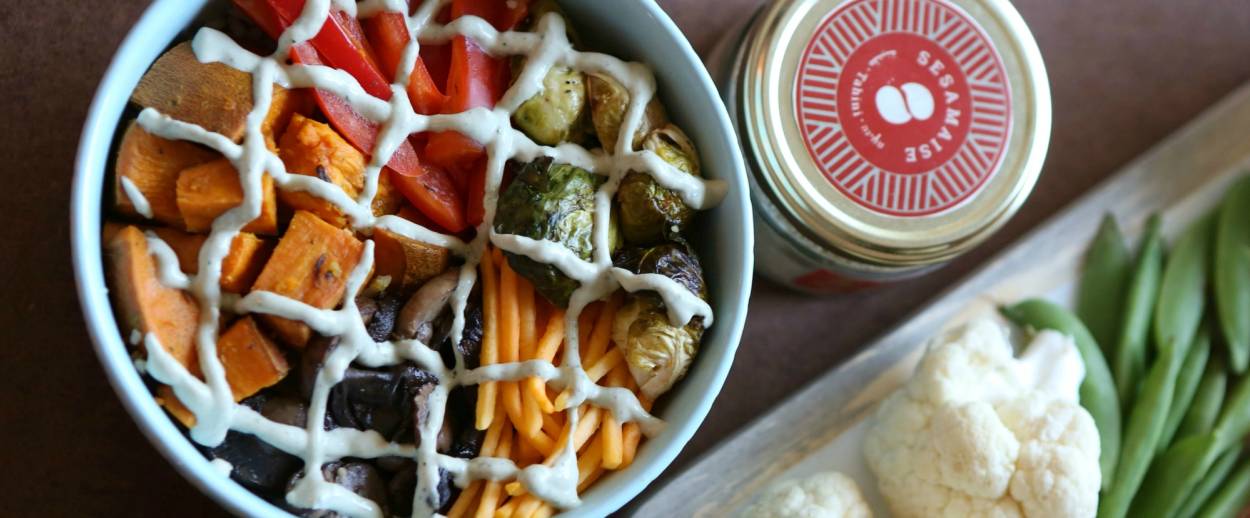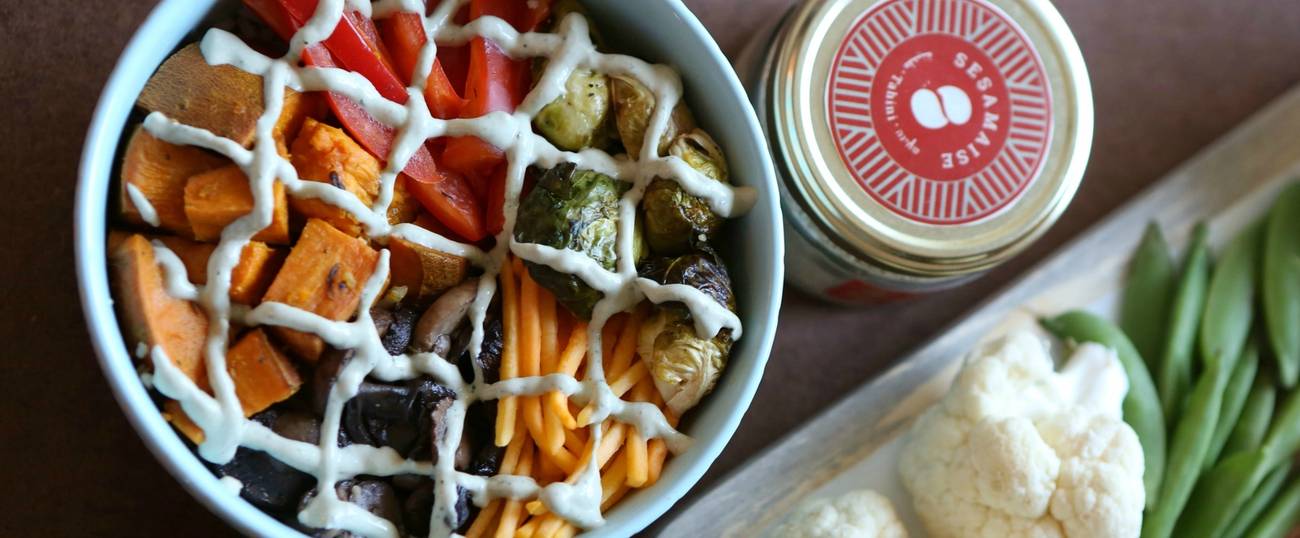Spreading Peace
A new tahini startup, Sesamaise gets its products from two separate family businesses, one Palestinian and one Israeli




When she moved from the East Coast to Tel Aviv in 2010, Cecilia Sibony introduced tahini into her kitchen. She was just looking for a healthier alternative to mayonnaise and sour cream, but little did she know that the sesame paste would one day be at the center of her business venture—and a possible synonym of peacemaking in the Middle East.
Back home, in New Jersey, Sibony had tasted tahini in her parents’ house—her father is an Israeli, so the family was no stranger to it—but the quality of this one, in Israel, was so much better, she thought. She started experimenting with it, using it as a dip, as a dressing for roasted vegetables and grain bowls, as a spread on sandwiches, as an ingredient for baba ganoush, and even as an ingredient for cookies. Since then, tahini (tahina, in Arabic) has never left her kitchen. But when she moved back to the States to attend graduate school a few years later, she struggled to find it in the supermarkets, and when she found it, it wasn’t as good as the one she used to eat in Israel.
Sibony was studying conflict resolution, trying to find a way to build new bridges between Israelis and Palestinians through social entrepreneurship and business ventures. And there, as she struggled to find good tahini in the exotic food aisle of the supermarket, she had an idea: What if she could get Palestinian and Israeli family businesses to join forces to bring the best tahini to the States?
Tahini is not nearly as popular as hummus on this side of the pond. (It’s ironic, if you consider that tahini is one of the main ingredients to make hummus.) But Sibony believes that it’s likely to become the “next big thing,” not only as a plant-based source of calcium and protein, but as a driving force for peace, too.
Raised in a Jewish Moroccan family in New Jersey, Sibony, who is now 31, grew up hearing a lot about the Israeli-Palestinian conflict, but from a Zionist perspective. “When I was in college, I was called ‘Arab’ for the first time,” she said. “I started to question this aspect of my identity.” After graduating, she won a Thomas J. Watson fellowship and traveled for a full year between Morocco, Egypt, Turkey, Tunisia, and Jordan, to learn about the local Jewish communities and the way they coexisted with the surrounding Muslim population. “It taught me the benefit and value of sitting together and getting to know people,” she said. “The best conversations I had were over meals.” So she thought, “if we can have more of these interactions, we can build more peaceful relationships.”
When she moved to Israel one year later, she found those interactions between Jews and Muslims possible in Jaffa, the old port city south of Tel Aviv. Over the seven years she spent there, she worked with different individuals, peace activists, grassroots organizations, and policy-makers on both sides of the Green Line.
The market, she came to believe, was the only force that could drive people away from the status-quo and lead them into the same room, at the same table, to interact, work together and, ultimately, trust each other.
Today her newly established company, Sesamaise Tahini, produces different varieties of ready-to-eat tahini dips. (It’s not the traditional tahini paste that one usually mixes with water and lemon juice, but Sibony thought this more “obvious” version would work better for the American market.)
“Making tahini is like making wine,” confessed Sibony. “There are so many decisions that get made in the process: Which variety of seed you use, where it’s grown, how you roast it… you change one of those and you get a different tahini.”
As of now, Sesamaise gets its tahini products from two separate family businesses, one Palestinian and one Israeli. These two companies do not interact—yet. Sibony said she’s yet to reach the sales needed in order to incentivize that kind of interaction. Sesamaise is her bet: If people start buying enough tahini, both businesses will have to agree to meet and work together. If they want to export their products to the United States, they must cooperate, starting from the smallest (and yet also the most difficult) steps, like sharing a shipping container and managing the shipping logistics together.
Sibony said she’s not disclosing the names of the businesses she works with not to compromise anyone’s safety. “This is a real conflict,” she explained. “There is already a lot of economic cooperation in the region, but it happens behind closed doors.” While both Israeli and Palestinian businesses that work with Sesamaise prefer to keep a low profile, it seems that the safety concerns apply more specifically to the latter. “The more we produce, the more we defuse the risk.”
At the moment, Sesamaise is raising funds through an online campaign called “Tahini Together.” Sibony has set an ambitious goal for it: $40,000; this is the money she needs to close a deal with the manufacturers. So far, she’s reached almost $10,000.
A sustainable peace is not coming from the top-down, said Sibony. Too many powerful actors are benefitting from the status quo, and even if the politicians signed a peace deal, she believes, the extremists on both sides would spoil it. “We need to build peace from the bottom up,” she said. Perhaps from tahini.
“When historians look back at different grassroots movements, they see there was a lot of hopelessness at first. We need to keep fighting for it.”
Simone Somekh is a New York-based author and journalist. He’s lived and worked in Italy, Israel, and the United States.